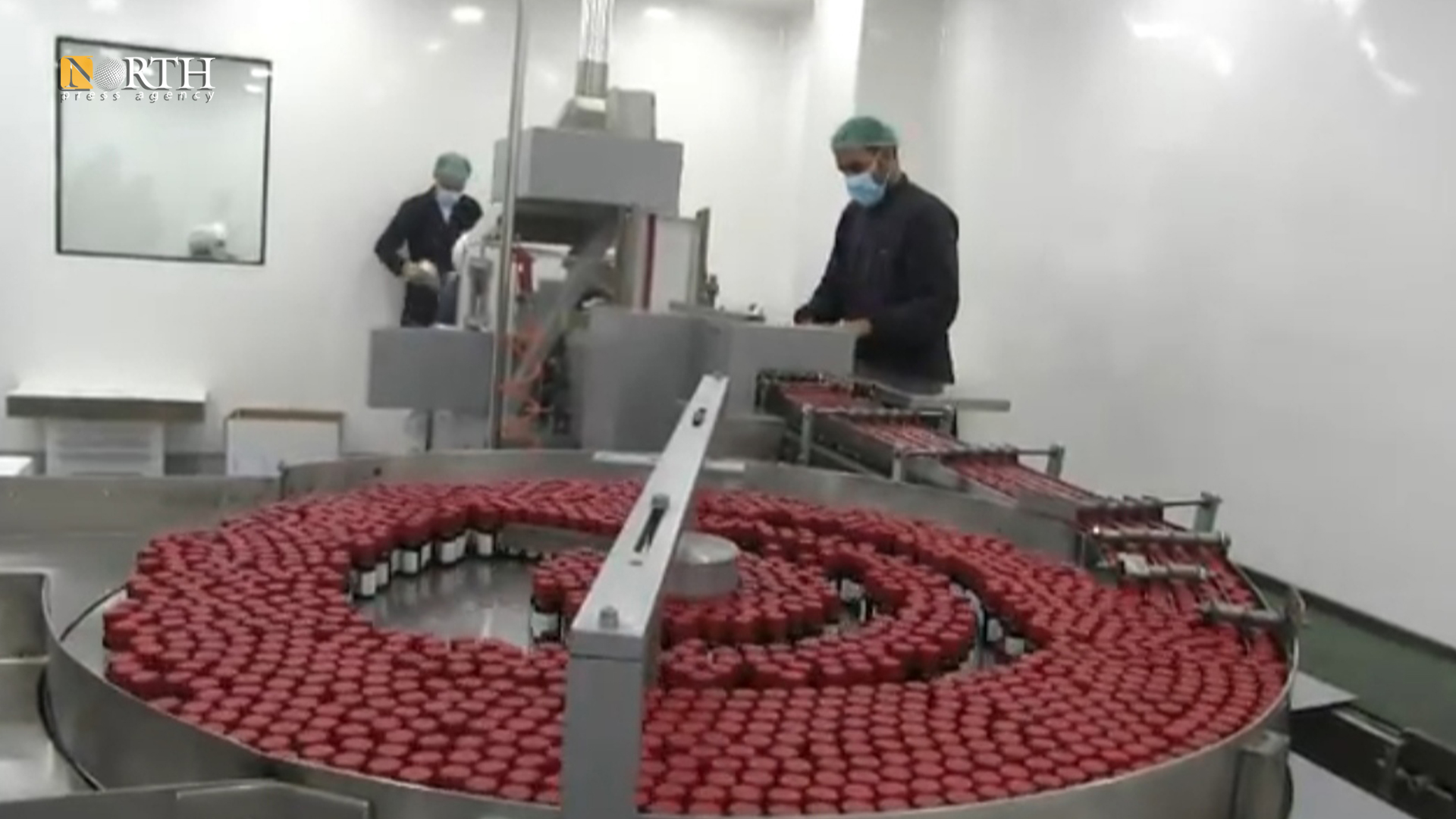ALEPPO, Syria (North Press)- Pharmaceutical plants in the western countryside of Aleppo, north Syria, face challenges in making profit amid the government’s failure to fulfill its promises to rehabilitate the infrastructure and the absence of support for importing basic materials for the pharmaceutical plants. This comes in addition to the government preventing imports that may alleviate the burden of the collapse of the local currency’s value.
In spite of the return of more than 20 plants and facilities for manufacturing pharmaceutical in Aleppo to work after Syrian government forces took control of its west countryside in February, the pharmaceutical industry in Aleppo is still incapable of restoring its production volume the way it was before the beginning of the war
Promises not fulfilled
The manager of the production department of Alpha pharmaceutical plant in Aleppo, Mohammed Idlibi, said that the government’s failure to fulfill its promises regarding services and infrastructure has hindered the development of industrial production in general and the pharmaceutical industry in particular.
Idlibi told North Press that the withdrawal of the armed groups, especially the Nour el-Din al-Zinki Movement who used to control al-Mansoura region a year ago, made the pharmaceutical plant owners optimistic about the return of appropriate conditions for production.
Al-Mansoura, which is six kilometers from Aleppo, is an important center of pharmaceutical industry in Syria, and has more than 35 pharmaceutical plants.
Since Syrian government forces took control of the western country side of Aleppo, officials and ministers have visited al-Mansoura, during which they promised to return life to it, but the road, electricity, and other services problems remained the same, according to industrial facilities owners.
Idlibi pointed out that the owners of facilities have paved the roads leading to them at their own expense, while the electricity is still dependent on private diesel generators.
No imports
The owners of pharmaceutical plants say that the basic materials used in the manufacture of pharmaceutical are imported in foreign currencies, and that the price increases approved by the government cannot keep pace with the continuous collapses in the value of the Syrian pound.
They believe that achieving pharmaceutical security and providing items to local markets at affordable prices will not be accomplished without reducing customs duties and providing foreign currency for producers.
The Technical Director of Ibn al-Haytham pharmaceutical industries, Nassir al-Shihabi, said that “it is the duty of the government, represented by the central bank, to provide us with foreign currency at the official exchange rate to be able to import the supplies of the pharmaceutical industry.”
“Our plant and others, whether in Aleppo or other governorates, import and clear customs without receiving any support,” al-Shihabi added.
Some say that during the Syrian war, the pharmaceutical industry was free from market manipulation, as it remained to some extent spared from the direct destruction and targeting compared to other industrial facilities. However, the negative effects of the war, the economic conditions in the country, and government neglect have been evident in pharmacies and pharmaceutical warehouses for years.
Syrian pharmaceutical manufacturers used to reduce production costs during the war years by reducing the quality of packages and leaflets, or resorting to smuggling quantities of their products to the markets of neighboring countries such as Lebanon and Iraq through intermediaries in order to achieve profit that compensated for low output.
Export prohibited
Officials in pharmaceutical marketing believe that the government’s ban on exporting local medicines to regional and global markets prevents local companies from making profit that would help them compensate for the shortfall in sales inside the country.
Meanwhile, quantities of medicines that enter the opposition-controlled areas in the countryside of Idlib and the northern countryside of Aleppo through smuggling are subject to extortion by military checkpoints, which raises their prices there.
A marketing officer at Ibn Al-Haytham Pharmaceutical Industries, Rasha Samakia, said that the growth in the pharmaceutical industry in Aleppo in particular and Syria in general is now linked primarily to the provision of foreign markets for export.
During the past months, the production of some facilities has doubled despite all obstacles, while the demand for Syrian varieties has increased in neighboring countries due to their cheap price and effectiveness, according to Samakia.
The government justifies its refusal to export Syrian pharmaceuticals by preserving pharmaceutical security, which some see as illogical because some locally produced items are “available in adequate quantities and continue to be produced.”
Pharmacy owners in the city said that some items were absent from the market in conjunction with high prices in foreign exchange rates.
Samakia believes that foreign marketing will reflect positively not only on pharmaceutical plants and their employees, “but also on the government, as foreign currencies will be provided and trade will be stimulated.

